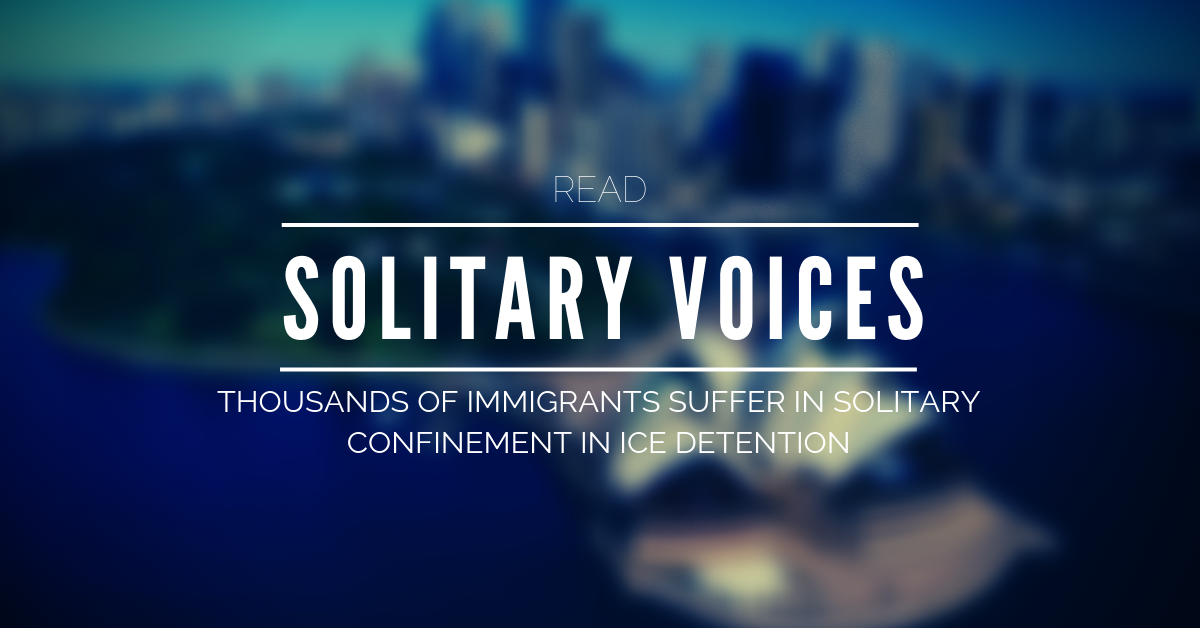Solitary Confinement of Detainees
Last year SALDEF began working to protect the rights for detainees in detention centers, ensuring they were afforded basic human rights, religious accommodation, and access to medical care. During our support of the detainees, we learned of the depth of the human rights abuses many of them have faced, and have been working with a coalition to support the detainees. Recently, the Intercept wrote an article highlighting one of the major abuses at these detention centers, solitary confinement.
Solitary confinement is a form of torture and should only be used in extraordinary circumstances. This is recognized worldwide as stated in the intercept article. “The United Nations special rapporteur on torture has said that solitary confinement should be banned except in “very exceptional circumstances”. ”
ICE’s own policies direct officers not to use solitary confinement until all other options are exhausted, and that “isolating detainees — who under federal law aren’t considered prisoners and aren’t held for punitive reasons —“a serious step that requires careful consideration of alternatives”.
An investigation by the Intercept and the International Consortium of Investigative Journalistshas found that ICE uses isolation as a go-to tool, rather than a last resort, to manage and punish even the most vulnerable detainees for weeks and months at a time.
The intercept also interviewed Ellen Gallagher, who currently holds a supervisory role in the U.S. Department of Homeland Security. Gallagher has tried for years to sound the alarm within her agency about a wide range of abusive uses of solitary confinement at ICE detention centers. She said, “People were being brutalized. The agency was using the punishing conditions of isolation on civil detainees routinely and often with little apparent justification.”
Gallagher also stated, “ICE’s internal guidelines explicitly require detention officials to document what alternatives to isolation were considered in certain cases. Gallagher often found no evidence that ICE had actually done this.”
Karandeep Singh, a detainee held in solitary confinement for peacefully protesting his deportation through a hunger strike at the El Paso Processing Center, was also interviewed for the intercept article. Singh said, “It was mental torture”, and that after more than two weeks in solitary, he bashed his head into his cell wall in an attempt to kill himself.
The article goes on to recount how Singh “was also moved again to isolation after he tried to kill himself. He said he remained in what he called the “suicide room” for 24 hours in handcuffs and was then placed in a smock.”
Read the entire article on hunger strike by clicking here.

